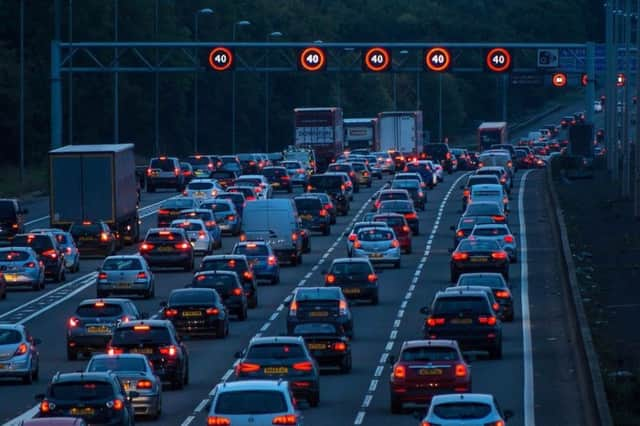This is how many hours per year your commute is costing you


The report (compiled by analytics company, INRIX) states that drivers in London lost an average of 74 hours while commuting in bad traffic during 2017.
This is an hour more than the previous year, and adds up to more than three days spent stuck behind the wheel over the course of the year.
Advertisement
Advertisement
In Manchester, the average time spent in rush hour traffic was 39 hours per year, while in Aberdeen and Edinburgh, drivers lost 28 hours.
According to the report, Newport motorists spent 24 hours per year in traffic jams (the highest number in Wales), and Belfast topped Northern Ireland’s list for a bad commute, with 21 hours a year written off to congestion.
The 10 most congested routes in the UK at peak times and annual hours lost per driver
Chiswick Roundabout to A40 Hanger Lane, London – 56 hours
A23 Kennington Park to Norbury Station, London – 50 hours
A4200/A4 Russell Square to New Fetter Lane, London – 47 hours
Advertisement
Advertisement
A34 Robin Hood Lane to A41 Soho Hill, Birmingham – 44 hours
Kensington High Street along Earl’s Court Road to A308, near Chelsea and Westminster Hospital – 42 hours
Finchley Road to Colney Hatch Lane, London – 42 hours
A4540 Five Ways to A41 Soho Hill, Birmingham – 42 hours
A658 Harrogate Road to Victoria Street, Leeds – 40 hours
B6117 to A644 Huddersfield Road, near Dewsbury – 36 hours
A56 to Northumberland Street, Manchester – 33 hours
‘A car is a necessity’ While leaving the car at home would free drivers from the daily grind of commuting by car, public transport simply isn’t an option for many.
“Nearly three-quarters (74 per cent) of motorists we spoke to for the annual Report on Motoring told us that they would find it very difficult to adjust their lifestyle without a car,” said RAC spokesman, R
Advertisement
Advertisement
od Dennis, commenting on the INRIX report findings. “Sixty-three per cent said that they would use their car less if public transport was better.
“This highlights the uncomfortable truth in the UK – that with few viable transport alternatives outside major cities, having access to a car is simply a necessity for millions of people.”
According to Dennis, the government need to focus on providing “cheap, practical reliable alternatives to the car – especially in urban areas”. Optimising existing roads and encouraging car sharing is a way to improve commuter drive times in the immediate future, says the RAC.